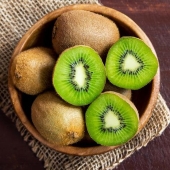Hello, I have been a member here for sometime, lots to learn here and have enjoyed reading the vast amount of info to be found.
These days I'm a keen seed grower here in the South Island, New Zealand, though my bread and butter has been in shearing sheep since I was in my early 20's. Back then we learnt our trade in government run shearing schools where both blade shearing as well as machine shearing was tutored. The tools of our trade back then were UK made shears that had seen little to no design improvements since the late 1800's, which became ever increasingly frustrating as one pair of shears would only last 4-5 days, it would then take up to an hour to setup a new pair. Those old style shears have one major floor in there design and that is the handle spring system and the two blades are all one piece, meaning they can only be made from high carbon steel only. Modern durable composite tool steels cant be used on such a design because tool steels cant be turned into spring steel.
So I decided to try and redesign the whole tool with the intention of being able to incorporate the use of modern tool steels such as D2. Little did I know at the time what a major mission it would turn out to be. But 20 years of prototyping I now sell shears all around world.
The 'kiwi' style of shearing with blades has been adopted in some parts of the world as seen in the video below of myself using the Watson Multishears shears, this is the style that I'm looking to teach outside of New Zealand. I'm currently talking with a sheep farmer from Missouri about flying over to the US and running a week long shearing course. At this stage its about whether there would be enough people interested attending in February-March 2026.
The price of the course would include your own shears to take home but also depends on how many folk keen to attend. There may well be enough interest in the NW states where a course could be setup there given the numbers of sheep.
Anyone interested can also email me
richard@watsonmultishears.co.nz





